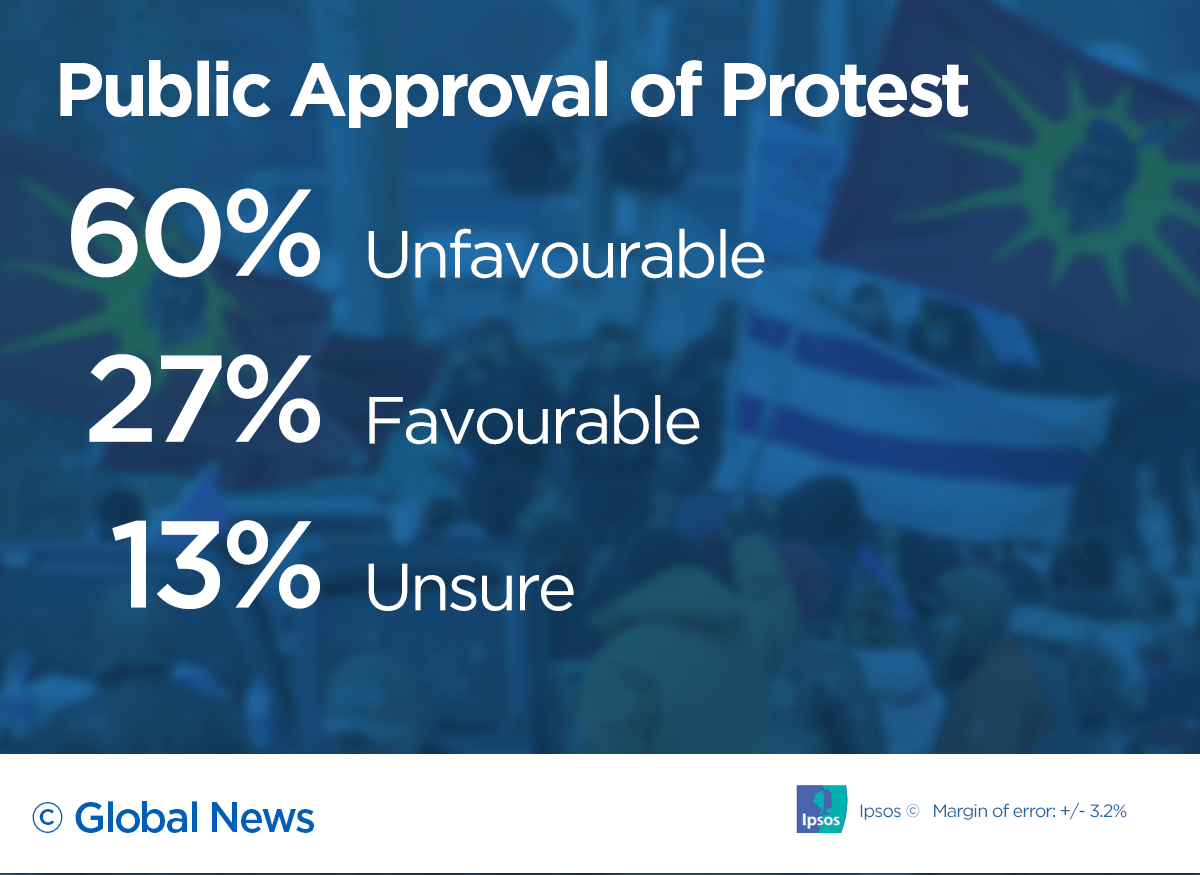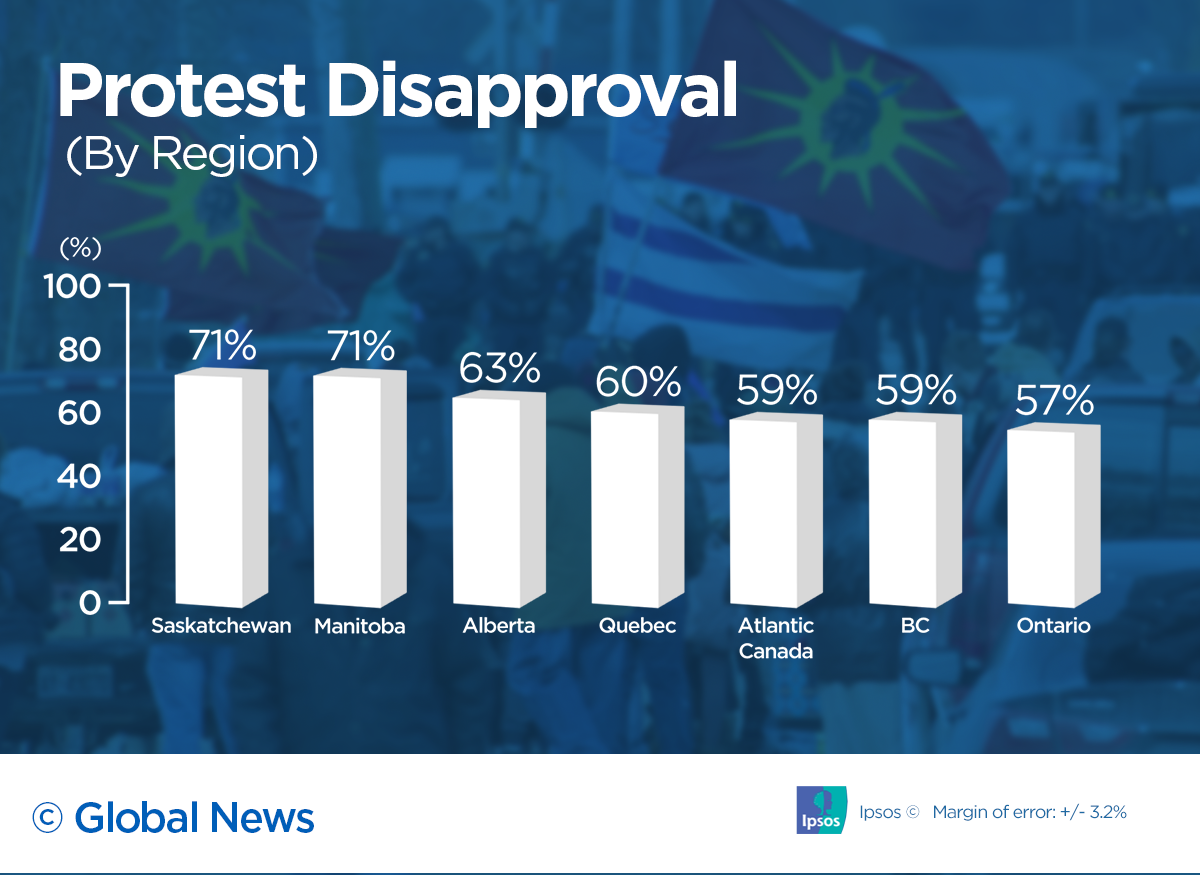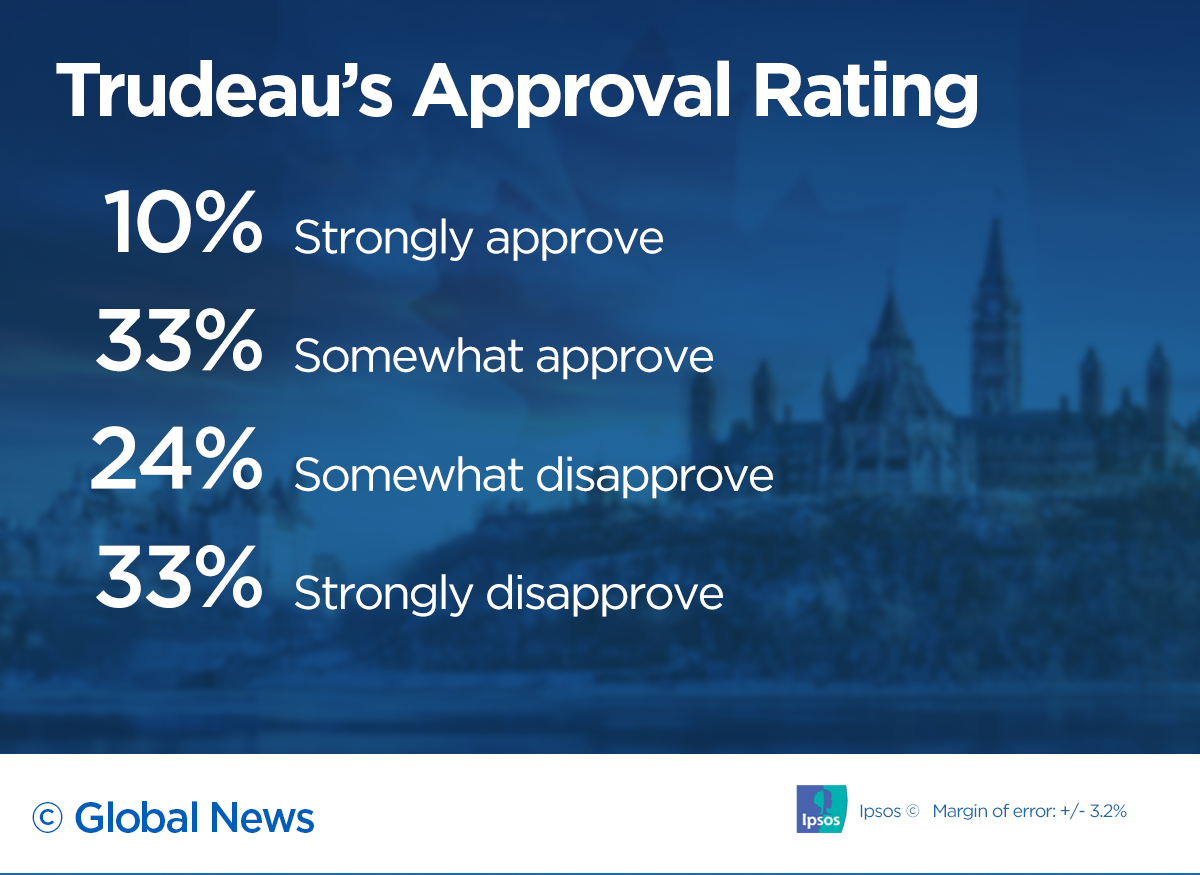A new poll suggests 60 per cent of Canadians oppose the Wet’suwet’en solidarity protests, and are becoming more supportive of police intervention to end blockades hampering rail travel and the transport of goods.

On Tuesday, Ipsos published a new poll on the ongoing demonstrations in solidarity with Wet’suwet’en hereditary chiefs in protest of a natural gas pipeline in northern B.C.
The poll found that 60 per cent of respondents were not in favour of the protests, marking an 11-point jump since last week. Conversely, 27 per cent were favourable, a decrease of five points.
The survey also found that 63 per cent of respondents supported the idea of police intervention to end the blockades, a 10-point increase over numbers released last week.

Meanwhile, 26 per cent opposed the use of police to end the blockades, while 11 per cent said they were unsure.
- Tumbler Ridge school shooting victim set to hopefully return home soon from Vancouver hospital
- Calgary family uses billboard in plea to find a kidney donor
- Alberta government announces purchase of new waterbombers to fight wildfires
- Ex-Conservative MP Matt Jeneroux crosses floor to join Carney’s Liberals
The survey found 63 per cent of respondents supported police intervention, an increase of 10 points over last week.
Conversely, 26 per cent opposed the use of police, down two points, and 11 per cent were unsure.

Ipsos Public Affairs CEO Darrell Bricker told Global News that “the numbers really are moving,” but noted there “isn’t a ton of regional variation.”
“Even though it kind of goes up and down in certain places in terms of the intensity of support, the majority basically everywhere say that they believe that this is not the way to do things and that some sort of a police intervention may be necessary (and) is, in fact, desirable.“
He said one would expect people in places less directly affected by the blockades to maybe have another point of view.

Get daily National news
“What we’re seeing is a public consensus forming on this issue, and public opinion is moving quite rapidly,” Bricker said.

Bricker said these types of issues usually begin with a focus on “the way forward for Indigenous Peoples.”
He said, though, that over a “fairly quick period of time,” depending on the level of public inconvenience and level of disruption that has been caused, it goes from being about Indigenous issues to being an issue of public control and public safety.
“And when the public hits that tipping point, it tends to move quite quickly in the direction of ‘something must be done to stop it,'” he said.
The poll also found that Trudeau’s approval rating has suffered.
The survey found 43 per cent of Canadians approve of the performance of the Liberal government under Trudeau’s leadership, two points lower than it was heading into election day last October.
Conversely, the poll found 57 per cent of Canadians disapprove of the Trudeau government’s performance, up two points from October.
And, while Bricker said the situation is “probably not helping the prime minister,” he said it’s “really not hurting them as strongly as maybe some of his opponents would suggest.”
“People are really more focused on the issue than they are on the politics of the issue,” he said.

The survey also found that those who approved of the Trudeau government’s performance were split on their views of the protests and how they should be dealt with.
Among those who approved of the government, 39 per cent were favourable towards the protests while 48 per cent were unfavourable.
More than half (55 per cent) of those who approve of the government also supported police intervention, while 34 per cent opposed.
METHODOLOGY: This Ipsos poll was conducted between Feb. 21 and Feb. 24, 2020. For this survey, a sample of 1,300 Canadians aged 18+ was interviewed online. Quotas and weighting were employed to ensure that the sample’s composition reflects that of the Canadian population according to census parameters. The precision of Ipsos online polls is measured using a credibility interval. In this case, the poll is accurate to within ± 3.2 percentage points, 19 times out of 20, had all Canadians aged 18+ been polled. The credibility interval will be wider among subsets of the population. All sample surveys and polls may be subject to other sources of error, including, but not limited to coverage error, and measurement error.











Comments
Want to discuss? Please read our Commenting Policy first.